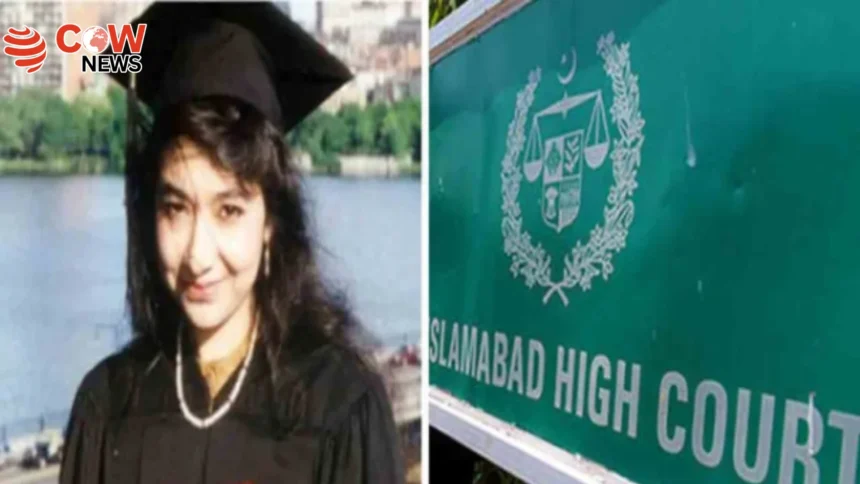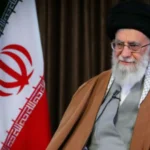Islamabad(TheCOWNews Digital)Pakistan’s Foreign Office has formally sought legal advice from the Attorney General’s Office regarding potential governmental legal assistance in the case of Dr. Aafia Siddiqui, who is currently imprisoned in the United States. The move marks a possible shift in Pakistan’s legal strategy to secure Dr. Siddiqui’s release or repatriation.
The development came during a hearing at the Islamabad High Court on Tuesday, where Justice Sardar Ejaz Ishaq Khan presided over the case concerning Dr. Siddiqui’s release and return to Pakistan. Prominent human rights lawyer Imran Shafiq Advocate, representing Dr. Fouzia Siddiqui—Aafia’s sister—along with former Senator Mushtaq Ahmed, appeared before the court to present their arguments.
Officials from the Ministry of Foreign Affairs were also in attendance. They informed the court that a formal request for legal input has been submitted to the Attorney General’s Office. The objective is to determine whether Pakistan can provide official legal assistance in Dr. Siddiqui’s ongoing case in the U.S. judicial system.
Dr. Aafia Siddiqui, a Pakistani neuroscientist, was convicted by a U.S. court in 2010 on charges of attempted murder and assault of U.S. personnel in Afghanistan. Her 86-year prison sentence has long been a point of contention in Pakistan, where many view her trial and imprisonment as unjust. Over the years, several diplomatic and legal efforts have been made for her repatriation, but they have remained unsuccessful.
During the hearing, Additional Attorney General (AAG) requested the court to grant a 10-day extension for the submission of the government’s official response. The AAG stated that more time is needed to finalize legal consultations regarding the scope of government involvement in a foreign court’s legal proceedings.
Justice Sardar Ejaz Ishaq Khan acknowledged the request but granted only a one-week extension, instructing the Attorney General’s Office to submit its response by June 25, when the next hearing will take place.
The renewed legal deliberations have reignited public and media attention on the high-profile case. Human rights advocates and political leaders have consistently called for greater governmental efforts to ensure Dr. Siddiqui’s return. The involvement of the Attorney General’s Office suggests that the Pakistani government may be exploring more active legal avenues within the U.S. judicial framework rather than relying solely on diplomatic measures.
Former Senator Mushtaq Ahmed addressed reporters outside the court, stating, “The government must act decisively now. This case is not just about one individual—it represents our national dignity and our constitutional obligation to protect Pakistani citizens abroad.”
The Islamabad High Court emphasized that the case must move forward with urgency, especially considering the prolonged nature of Dr. Siddiqui’s incarceration and her reported declining health. Human rights organizations have also raised concerns about her treatment and medical condition while in custody.
Whether or not the Pakistani government will be allowed to intervene directly in U.S. court proceedings remains to be seen. However, legal analysts suggest that a formal request from the Foreign Office followed by an Attorney General-endorsed strategy could pave the way for new legal actions on behalf of Dr. Aafia Siddiqui.







